International
Israel shifts the spotlight to the West Bank with a large-scale raid and kills 9 Palestinians
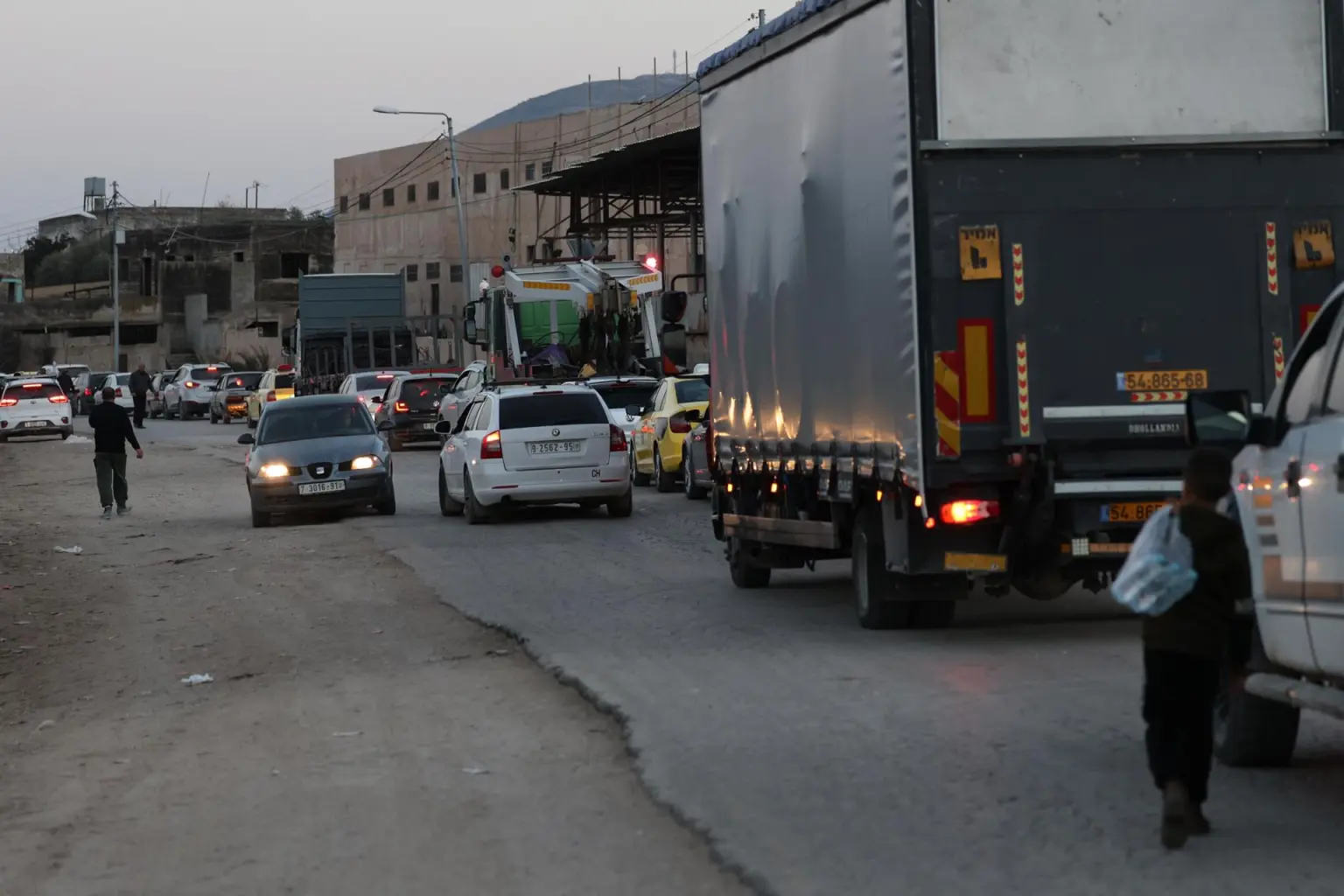
After Gaza and Lebanon, today we begin, with God’s help, to change the security situation in Judea and Samaria (the biblical name for the West Bank),” Israeli Finance Minister Bezalel Smotrich announced on Tuesday.
Shortly before, the Army began a large-scale raid in Yenin, in the north of the occupied territory, which so far has claimed the lives of nine Palestinians and injured 35 others.
Just two days after the ceasefire in the Gaza Strip came into force, the attention of the armed forces has been diverted to the West Bank: dozens of excavators have accessed Yenin and its refugee camp with Israeli troops, and drone attacks and shots from Army helicopters have been recorded.
In an unusual move, the office of Prime Minister Benjamin Netanyahu publicly announced the start of the operation, dumbled “Iron Wall”: “We are acting systematically and decisively against the Iranian axis wherever it sends its weapons, in Gaza, Lebanon, Syria, Yemen and Judea and Samaria.”
Interviewed by the official Palestinian news agency, Wafa, the director of the Government Hospital of Yenin, Wissam Bakr, regretted that the speed with which the morning rounding was unfolding did not correctly count the number of injured, which was constantly evolving.
Videos recorded in the city and its refugee camp show how Israeli excavators advance through the streets, razing the roads.
In one of them, an old man crosses the street carrying a bag while the shots hit near his feet. In another, a nurse who walks with another man down the street has to run away when someone opens fire on them.
In the channels of the Palestinian Red Crescent emergency service, the announcements of the transfer of the shot wounds from different areas of the city to the hospitals became a constant as the afternoon progressed.
“The occupation forces (Israel) prevent our teams from reaching the wounded inside the refugee camp when we receive the reports,” the group said this morning.
Following the announcement of the offensive, the Islamist group Hamas today urged both Palestinian civilians and their militiamen to respond to the Israeli army and counterattack.
“We call on the masses of our people in the West Bank and their revolutionary youth to mobilize and intensify the clashes against the occupying Army at all points, and to work to thwart the extensive Zionist aggression against the city of Yenin,” the group said in a statement.
Hamas also accused the forces of the Palestinian National Authority (PNA), in the hands of the secular Fatah party, of having abandoned Yenin to allow the operation of Israeli troops instead of defending the Palestinians.
The security forces of the ANP (which governs in small parts of the West Bank) concluded on Friday a 42-day operation in Yenin that ended in the death of police, militiamen and civilians, and which from the Palestinian factions was seen as a demonstration of power of the ANP to demonstrate to Israel its ability to manage security in Gaza after the ceasefire.
The Palestinian Islamic Jihad, one of the predominant movements in the Yenin camp, also assured that Netanyahu is trying to “save his shaken government coalition” with the operation in the West Bank, after having “failed” in Gaza.
On Saturday, when there were still hours left for the ceasefire to take effect, the Israeli Army warned that it was preparing to increase its presence in the West Bank with up to seven companies, on the occasion of the release of Palestinian prisoners contemplated by the agreement, in exchange for the hostages.
Among Netanyahu’s radical partners (such as the former Minister of National Security, Itamar Ben Gvir, or the head of Finance, Smotrich) the release of Palestinian prisoners earned the agreement qualifications as “disastrous” or “dangerous”.
The support of at least one of them is essential for Netanyahu to maintain the current government coalition, so, in view of Ben Gvir’s resignation, the prime minister met with Smotrich up to five times to prevent him from leaving the Executive.
Numerous Israeli media reported that Netanyahu put on the table to increase the Israeli presence in the West Bank as a condition for Smotrich not to leave the coalition. When the Executive voted this Friday for the agreement, Smotrich voted against it, but did not leave the Government.
Central America
Peru’s ambassador highlights “historic bonds” with El Salvador on Independence Day

The Ambassador of Peru to El Salvador, Jorge Rosado La Torre, reaffirmed on Monday evening—during Peru’s Independence Day celebration—that Peru “maintains historic ties of friendship, cooperation, and mutual respect with El Salvador” and acknowledged “its firm willingness to continue deepening our bilateral relations.”
Rosado La Torre highlighted the strong relations between El Salvador and Peru at the ceremony held at the Palacio Tecleño de la Cultura y las Artes to mark the 204th Anniversary of Peru’s Independence, proclaimed on July 28, 1821.
“El Salvador and Peru share fundamental principles: respect for the rule of law, the promotion of human rights, multilateralism, and the defense of peace and democracy,” the diplomat said during the event, which was attended by diplomatic authorities, Salvadoran officials, members of the Peruvian community, and friends of Peru.
The ambassador also emphasized that Peru and El Salvador “are also united by cultural, social, and human bonds, which grow stronger every day through joint work and the connection between our societies.”
Rosado La Torre noted that Peru’s Independence Day “not only allows us to celebrate a national milestone but also to strengthen the bonds of brotherhood and cooperation between our peoples.”
International
U.S. and China push for extension of tariff truce after “constructive” talks in Sweden
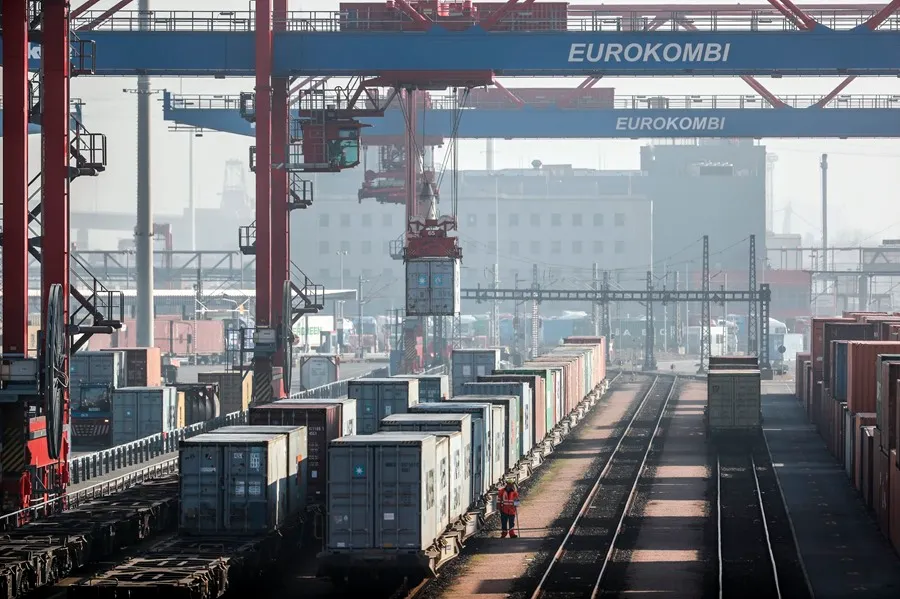
The United States and China “will continue working” to secure an extension of their tariff truce, China’s international trade representative Li Chenggang said Tuesday, according to state news agency Xinhua.
Li’s comments followed negotiations in Sweden with a U.S. delegation led by Treasury Secretary Scott Bessent, describing the talks as “frank, in-depth, and constructive,” Xinhua reported.
The discussions aimed to prolong the 90-day pause negotiated in Geneva in May—set to expire on August 12—which temporarily ended the mutual retaliatory measures that had triggered punitive tariffs. The truce lowered customs duties on U.S. and Chinese goods from 125% and 145% respectively, to a more moderate 10% and 30%, on top of existing tariffs, ahead of Donald Trump’s return to the White House earlier this year.
The U.S. and Chinese delegations—led by Treasury Secretary Scott Bessent and Vice Premier He Lifeng—also exchanged views on key economic and trade issues and pledged to maintain close communication, Li added.
The talks in Sweden came at the start of a crucial week for Trump’s trade policy, as tariffs on most of the United States’ main trading partners are set for a sharp increase on August 1.
International
Trump administration opens civil rights probe into duke university over alleged bias

The administration of U.S. President Donald Trump launched a formal investigation on Monday into Duke Universityand its law journal over alleged “discriminatory practices.”
The Department of Education’s Office for Civil Rights (OCR) opened the probe following complaints that Duke’s law review selection process allegedly awarded extra points to applicants who “referenced their race or ethnicity in their personal statements,” according to a statement from the department.
Based in North Carolina, Duke is the latest academic institution to come under scrutiny from the Republican administration, which has escalated an ideological battle against universities.
Trump has repeatedly claimed that higher education institutions have been “captured by the far left” and has taken action to sanction and ban Diversity, Equity, and Inclusion (DEI) programs aimed at addressing social inequities in admissions and faculty hiring.
Education Secretary Linda McMahon and Health and Human Services Secretary Robert F. Kennedy Jr. sent a joint letter to Duke’s leadership expressing concerns about the use of “racial criteria in hiring, admissions, and scholarship awards,” particularly within the university’s health system.
“I’m proud to partner with Secretary Kennedy to ensure Duke commits to excellence, integrity, and respect for the law in shaping the nation’s future leaders,” McMahon said.
“Granting illegal preferential treatment based on immutable characteristics is an affront not only to civil rights laws but also to the meritocratic nature of academic excellence,” she added.
The decision to investigate Duke comes just days after Columbia University agreed to pay a $200 million fine to settle accusations by the Trump administration of alleged antisemitism.
-

 International5 days ago
International5 days agoChevron cleared to pump oil in Venezuela again, but Maduro won’t see the profits
-

 International5 days ago
International5 days agoClaudia Sheinbaum condemns Gaza famine and urges peace between Israel and Palestine
-
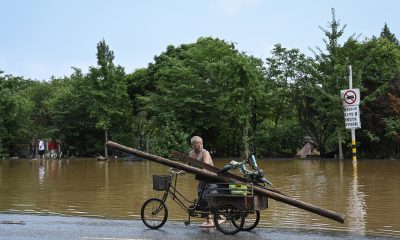
 International2 days ago
International2 days agoFour dead, thousands flee as floodwaters ravage Northern China
-

 International2 days ago
International2 days agoMultiple fatalities reported in Nevada Resort shooting as Police detain gunman
-
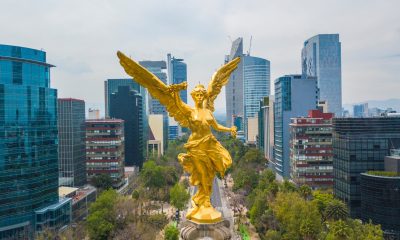
 International4 days ago
International4 days agoMexico launches electronic visa system to modernize and speed up immigration procedures
-

 International4 days ago
International4 days agoColombian Vice President Francia Márquez accuses government of sidelining her role
-

 International3 days ago
International3 days agoMexico City becomes ‘forced waiting point’ as migrant crisis deepens
-
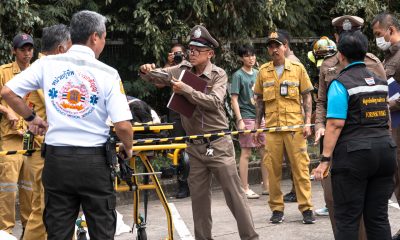
 International2 days ago
International2 days agoFive security guards killed in mass shooting at Bangkok Market
-

 International3 days ago
International3 days agoOpposition still rejects Maduro’s Victory as anniversary of 2024 vote nears
-

 International2 days ago
International2 days agoZelensky praises Trump’s ‘clear stance’ on Russia as ultimatum deadline tightens
-

 International2 days ago
International2 days agoNetanyahu cites historic success against Iran as he pledges relentless Gaza campaign
-
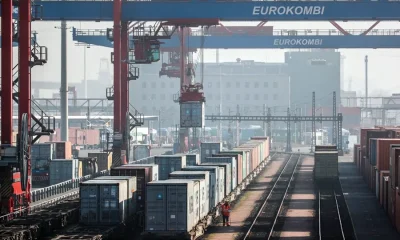
 International21 hours ago
International21 hours agoU.S. and China push for extension of tariff truce after “constructive” talks in Sweden
-

 International2 days ago
International2 days agoVatican reports $72M profit in 2024, boosted by real estate and investments
-

 International21 hours ago
International21 hours agoMedvedev warns Trump after new Ukraine ultimatum: ‘Russia is neither Israel nor Iran’
-

 International2 days ago
International2 days agoHepatitis D declared carcinogenic as WHO urges action to end global crisis
-

 Central America21 hours ago
Central America21 hours agoPeru’s ambassador highlights “historic bonds” with El Salvador on Independence Day
-

 International2 days ago
International2 days agoPeru’s president under fire as she promises crackdown on organized crime
-

 International21 hours ago
International21 hours agoTrump administration opens civil rights probe into duke university over alleged bias
-

 International21 hours ago
International21 hours agoArgentina requests reentry into U.S. Visa Waiver Program during DHS chief’s visit
-
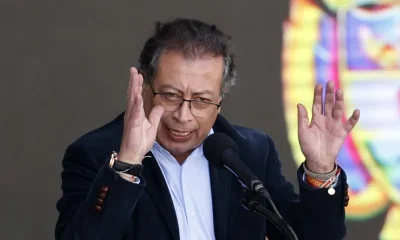
 International21 hours ago
International21 hours agoPetro accuses Marco Rubio of undermining colombia’s sovereignty over Uribe comments






















